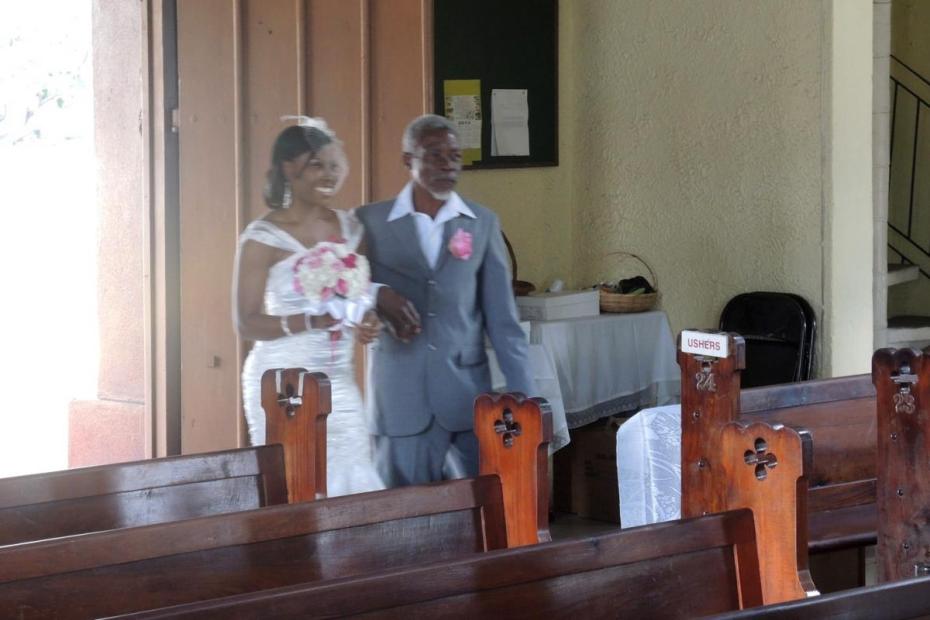Family is important as an ideal in Jamaica, but the marriage rate—especially among the poor—is a matter of social concern for Jamaicans. This concern stretches back to the era of the first Christian evangelists, but many observers cite as a legacy of slavery.1 Marriage has long been seen as a marker of middle class status, but middle class interviewees fretted that marriage was now too infrequent there. In recent years, almost 85% of births in Jamaica are to single mothers.2 In poor areas, one often hears of women referring to a “baby fada,” the man who is the father of her children.
One of the paradoxes of Jamaican society is that dominant Christian values continue to demand greater adherence to married family life, but Jamaican culture can be highly sexualized, and unmarried households are the norm. The marriage rate in the last decade has declined, while the divorce rate increased.3
Many Pentecostal churches are said to turn away unmarried women in relationships with men, but Catholics say that single women raising children can find a comfortable home in the churches. Priests and others preach the value of marriage, but women often say that they see too few good options among the men they know, and that men are overly fearful of commitment.
Extensive migration since the 1950s means that most families have some relatives in the U.S., Canada or Great Britain, or even in all three places.
Antipathy toward gays and lesbians is very strong in Jamaica, and has been expressed in public comments by many leading lay Catholics.
Gender roles in the Church
All the churches in Jamaica note a particular problem attracting and holding men in the congregations. According to the 2011 census, women outnumber men in all of the Christian denominations, though Catholic membership is most equalized, at 47% male and 53% female.4 Two thirds of the non-religiously affiliated persons in Jamaica are men, and in the last decade that proportion has grown. While the population of persons who identified with no religion or denomination grew by about 26,500 people between the 2001 and 2011 censuses, men made up 88% of that differential.5
In interviews, some Jamaicans noted that men are more likely to see hypocrisy in the churches. All suggested that they saw the church giving adequate and appropriate responsibility to women.
- 1 Diane J. Austin-Broos, Jamaica Genesis: Religion and the Politics of Moral Orders, (Chicago, University of Chicago Press, 1997), 31, 40. and Orlando Patterson, The Sociology of Slavery: an Analysis of the Origins, Development, and Structure of Negro Slave Society in Jamaica, (Rutherford: Fairleigh Dickinson University Press, 1969).
- 2See "Single and super! Whether they are waiting for Mr Right or choosing independence, women are opting to stay single," The Gleaner, July 12, 2009, http://jamaica-gleaner.com/gleaner/20090712/lead/lead1.html.
- 3 Statistical Institute of Jamaica, Marriages and Divorces, last updated May 17, 2013, http://statinja.gov.jm/Demo_SocialStats/marriagedivorce.aspx.
- 4Statistical Institute of Jamaica, "Population by Sex and Religious Affiliation/Denomination by Parish," 2011 Census of Population and Housing, last accessed June 6, 2014, http://jamaica-gleaner.com/pages/population-and-housing-census-2011/files/assets/basic-html/page120.html.
- 5Rev. Clinton Chisholm, “Religion And The 2011 Census,” The Gleaner, Nov. 4, 2012, http://jamaica-gleaner.com/gleaner/20121104/focus/focus4.html.
